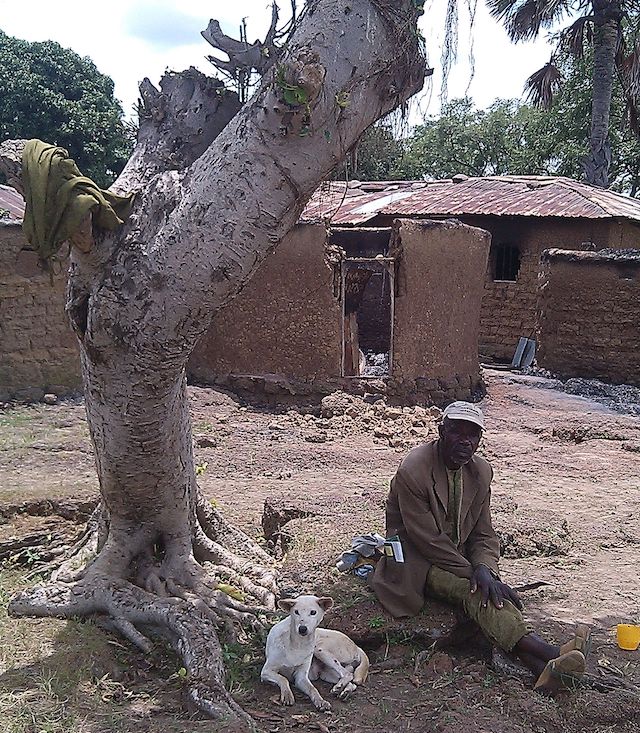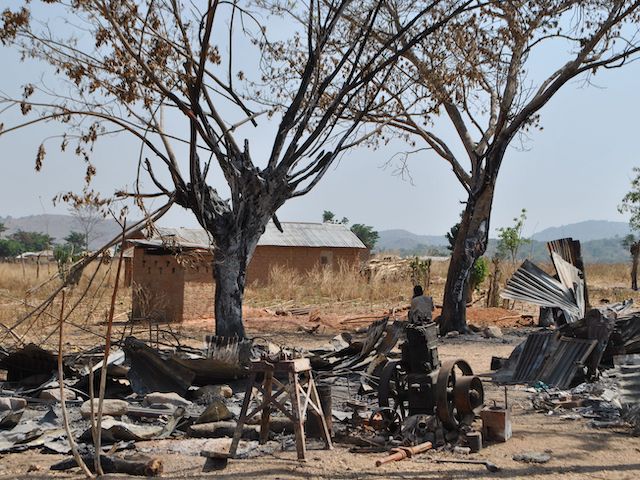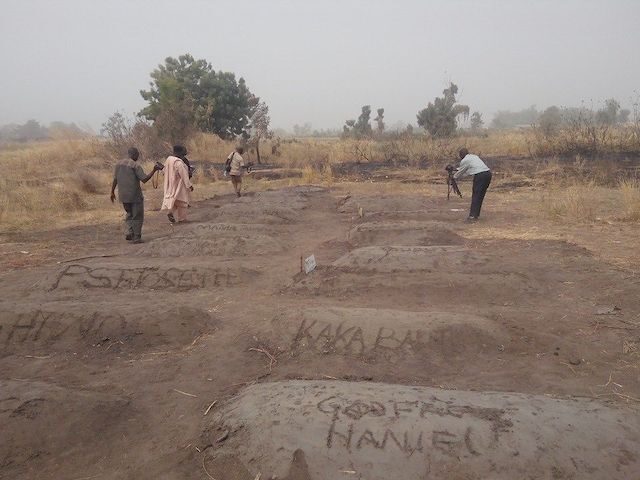Fifteen years ago, in Northeast Nigeria, Pastor Ohji delivered what would be his last, greatest and shortest sermon.
As he spoke, tears welled in his eyes — tears of gratitude for a life lived well and of love for the friends and townspeople he would see no more. His “sermon” contained only six words, but its impact would carry far beyond that moment.
When he finished, a sword fell, and his earthly race was over.
Thanksgiving is the time to think about gratitude and the ways the Lord has blessed us this year. As you sit with loved ones this Thanksgiving, think about Pastor Ohji's words: what does it mean to die well, and more importantly, what does it mean to live well? The persecuted and the martyrs are whispering their lessons to us. They show us the way to do both if we simply stop and listen.
Posted by International Christian Concern on Wednesday, November 27, 2024
Pastor Ohji’s life was taken by Boko Haram, the infamous Islamist terror group whose campaign of violence still goes on today in Nigeria. When Ohji saw the storm coming, he urged his congregation to flee south for safety. But when an elderly church member was left behind, he chose to return, fully aware of the risk. He was captured, along with many other Christians. They were given a stark choice: renounce their faith and live or stand firm and die. As the captives separated themselves into their chosen fates, Pastor Ohji began to sing hymns, imparting courage to his “congregation.”
When the militants were ready, it was obvious who their first victim would be; Pastor Ohji was dragged before the group and given one last chance to save himself. His response? He looked into the eyes of those he had befriended and shepherded with remarkable calm and spoke his final six-word sermon: “Tell my family I died well.”
I know Pastor Ohji’s story because my organization had the privilege of supporting his family after his death. But his story echoes the experiences of countless Christians — hundreds of thousands in Nigeria and millions worldwide — who have given their lives for their faith in the past century.

A villager and his dog in a Christian community terrorized by jihadists in Nigeria (Courtesy of International Christian Concern)
Over two decades, I have read thousands of such accounts, and each carries a treasure of lessons. Perhaps their greatest gift is showing us what it means to live — and to die — well.
For Pastor Ohji, “dying well” meant ordering his entire life around a higher purpose and remaining faithful to that mission, even to death. Yet, his tears and final words reveal that his life was also anchored in love for his family, friends and community. He clearly understood a truth that becomes self-evident at the end of life’s race: there are only two things that truly matter — our relationship with God and our love for others.
At Thanksgiving, as we gather with loved ones around tables with food lovingly prepared, it’s naturally a time to reflect on the lessons of gratitude. After all, that was the original intent of Thanksgiving. Lincoln proclaimed a National Day of Thanksgiving shortly after the bloodshed of Gettysburg. Born out of immense suffering, Lincoln’s call was for gratitude that acknowledged heaven’s blessings and committed the nation to a shared mission of healing and unity. Thanksgiving was never meant to be just a holiday; rather it is a call to remember what we have received and to live with purpose and mission.
Lincoln’s proclamation and Pastor Ohji’s final words both point to a timeless truth: deepest gratitude doesn’t usually come from abundance, but rather from a place of deep pain and loss. The persecuted and the martyrs, like Pastor Ohji, whisper to us about the essence of meaning.

The rubble of a burned community attacked by Fulani jihadists in Nigeria (Courtesy International Christian Concern)
Meaning is a byproduct of ordering our lives around what truly matters — our love for God and for humanity. It comes from anchoring our hearts to eternal truths and sharing the selfless love poured out upon us.
So, as you sit at your Thanksgiving table, reflect on Pastor Ohji’s final words. Consider what it means to “die well” and, even more importantly, to live well.
For we all hope to exit this race with our eyes and hearts full of love from having run a good race.
Jeff King has served as International Christian Concern (ICC) (persecution.org) president since 2003 and is one of the world’s top experts on religious persecution. He has advocated for the persecuted everywhere, testifying before the U.S. Congress on religious freedom. He has been interviewed or quoted by most of today’s leading media outlets such as the New York Times, the Wall Street Journal, the Washington Post and The Washington Times. He is a three-time author and is available as a guest speaker. Jeff is also the host of “Faith Under Fire,” a podcast dedicated to helping Christians deepen and defend their faith. To learn more, go to the Jeff King Blog.

COMMENTS
Please let us know if you're having issues with commenting.